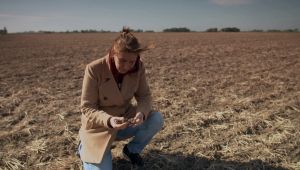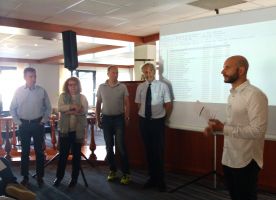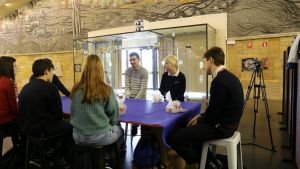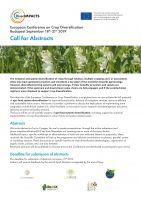- Details
A study developed by researchers from the Diverfarming project finds pesticide residues in the soils of eleven European countries in six different cropping systems
The use of phytosanitary projects to combat weeds and other pests that affect the crops has led to an increase in the productivity of European agricultural crops in the last 50 years. Their use has been one of the principal mainstays of the intensification of agriculture in recent decades and has enabled greater crop yields to be obtained, but this advantage has been at the expense of the agricultural soils of the European Union.
Two researchers from the scientific team of the European Diverfarming project at the University of Wageningen (Netherlands), Violette Geissen and Coen J. Ritsema, have analysed surface soil samples from 11 European countries, searching for traces of the pesticides used in the area of agriculture and they have confirmed the persistence of this type of product in the land.
Experts in agricultural management and policies guide the change in paradigm in European agriculture
- Details
The advisory board includes personnel from the Junta de Andalucía, the Ministry for Agriculture of Finland and representatives from European agrarian trade unions
The change in paradigm in European agriculture will suppose focusing on a model based on crop diversification, the conscious use of natural resources through management techniques appropriate for this end and the participation of farmers and final users. Building said model also counts on a staff of experts in the agriculture sector who will guide the project’s objectives in order to ensure they crystallise into measures within European agrarian policies.
The main function of this external advisory board is to evaluate the progress of the project and orientation regarding future work; they therefore attend annual meetings and monitor the drift of the Diverfarming project, which is financed by the H2020 project of the European Commission.
- Details
Pupils from schools in the province of Cordoba hear about the Diverfarming project first hand in the activity ‘Coffee with Science’
In a breakfast shared with research staff from the University of Cordoba, the pupils of 4th ESO from schools in Lucena, Posadas, Pedro Abad and from the city of Cordoba could learn about the challenges that the European Diverfarming project poses, from the researcher Manuel González, of the Departamento de Edafología at the University of Cordoba.
- Details
The European Conference on Crop Diversification will be celebrated next September 18-21 2019 in Budapest. The objective of this conference organized by DiverIMPACTS is to explore how can achieve the full potential of agri – food system diversification for improved productivity, delivery of ecosystem services, resource-efficient and sustainable value chains. Moreover, it provides a platform to discuss the implications of implementing more integrated sociotechnical systems (i.e. which facilitate co-innovation across research and development, education, advisory, business and policy sectors). The focus will be on all scientific aspects of agri-food system diversification, including support for practical implementation of crop diversification in value chains and policy-related issues.
- Details
The industrialization of agriculture increased the crop yield, but more and more the negative side of this boom. 2.000 pesticides with 5.000 different chemical substances are used in the European Union. How does it affect soil health?














